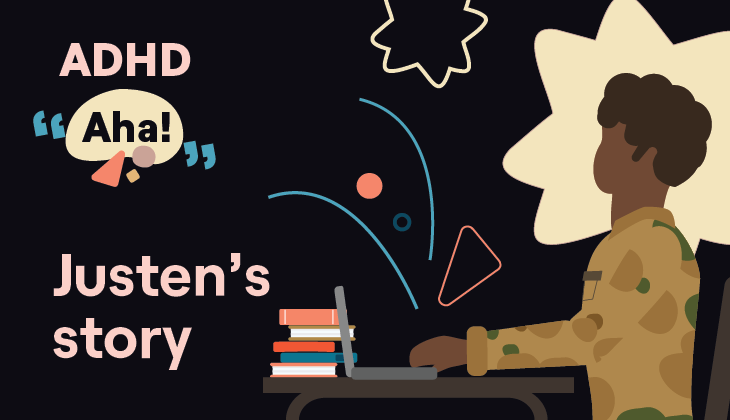Stay in the know
All our latest podcasts delivered right to your inbox.
Justen Scott got diagnosed with ADHD this year at age 27. His ADHD “aha” moment happened while he was stationed in Qatar for military service, and work just kept piling up. Trouble with focus and time management had been a problem for Justen since high school. But when others in the military started to notice his challenges, he knew it was time to get evaluated for ADHD.
Host Laura Key and Justen talk about trying to seem “cool” on the outside — even as thoughts race a mile a minute on the inside — and how one small noise can be a huge distraction. Hear Justen’s take on how the military handles ADHD. And pick up a few tips on managing ADHD along the way.
Related resources
Episode transcript
Justen: I was over in Qatar, you know, I'm the deputy for my office. And at this time I had a lot of meetings to go to. And I went to my first meeting, and when I got back, my boss was like, "What are you doing?" I'm like, "What are you talking about, sir?" He was like, "You know, you have another meeting." And I'm like, "Oh, man." So I had to rush to that meeting, and I'm already late, so, you know, I'm kind of already feeling bad. So when I get back to the office, the phone rings. I'm on the phone, and I'm supposed to be doing some more work, fixing some Excel sheets. So after that phone call, I tell my boss, "Hey, I'm gone for the day, see you tomorrow."
And he's like, "Did you finish the Excel sheets?" And I'm like, "Oh, those Excel sheets." So I had to stay a little later to finish the Excel sheets. And that's kind of like the time I was like, "Wow, what's going on, like, why am I always distracted? Why can't I remember stuff?" Then I realized that, well, you really got a problem, dude.
Laura: From the Understood Podcast Network, this is "ADHD Aha!" — a podcast where people share the moment when it finally clicked that they or someone they know has ADHD. My name is Laura Key. I'm the editorial director here at Understood. And as someone who's had my own ADHD "aha" moment, I'll be your host.
I'm here today with Justen Scott. Justen is a student in New York City who is currently in the Army Reserve. Welcome, Justen. Thanks for being here today.
Justen: Thank you for having me.
Laura: I'm excited to talk with you today. And I guess I want to start, I want to say thank you for your service in the military.
Justen: Thank you for your support, ma'am.
Laura: Tell our listeners what you do or what you have done in the service.
Justen: So I went to Bethune-Cookman University. I was in the ROTC program there. Got a commission and I went into the reserves. For like three years, I went to drill and stuff every month, then I eventually got on active duty orders. I was in Kentucky, went to Fort Bragg, and then I recently, last year, came back from Qatar. And I'm a medical service officer, but when I was in Qatar, I was doing more, uh, operation contract work.
Laura: What led you to military service?
Justen: Well, when I was in college, I'm a physical education/recreation major, and I wasn't doing no extracurricular activities. So somebody put a little bug in my ear, said, "Hey, you should try ROTC." Tried it, got a scholarship, and then that was it.
Laura: You're in the New York area. Is that right?
Justen: Yes, ma'am.
Laura: Where did you grow up?
Justen: Fayetteville, North Carolina. Yeah, I'm an Army brat. My dad was in the Army.
Laura: OK, so was that part of your motivation for joining the military as well? No? Interesting.
Justen: The whole military thing was my ex's parents' idea.
Laura: Got it.
Justen: That's why I said a little birdie put it in my ear.
Laura: Got it. Tell me about what happened in Qatar related to ADHD.
Justen: My favorite boss that I ever had, his name was Major Jonathan Ward. He's one of those people who's like very detailed, like by the book, like, "Hey, after this thing, you do this. After this thing, you do this." So at the time, I was kind of transitioning to take his position before a new person came in. So I had to go to more meetings. And there was a meeting one time, I went to it, but we had other meetings scheduled after that. And me, my ADHD, I forgot. So I got back to the office and I'm just like relaxing. And he's like, "What are you doing?" And I'm looking at him like, "What do you mean?" "You have another meeting." I'm like, "Oh, my goodness." So I have to rush to that meeting, and, you know, and the Army don't like you being late. So now I'm kinda like looking all ashamed, like, "Sorry for being late," you know, it was my fault. And then I also had work to do previously before the meetings. So when I got back from that meeting, I got a phone call, got distracted, forgot to do my work. I'm about to leave, like, "Hey, sir, have a nice day." He's looking at me like, "Did you finish your other work?" And I'm like, "Oh." And that happened a lot, but luckily I had a master sergeant who was like my partner in crime. He would kind of remind me like, "Hey LT, you have a meeting. Hey, we got to go here." My mind would just be all over the place.
Laura: What's LT?
Justen: Uh, lieutenant. I don't like to be calling "sir," because it just feels weird to me. I feel older. I just say "LT" or "Lieutenant."
Laura: This was an "aha" moment for you. This sounds like it was some kind of breakthrough. Like it, it really stuck with you, this incident or incidents that happened in Qatar. You were struggling with focus it sounds like, distraction, time management.
Justen: It's one of those things, like when it keeps happening, other people will start noticing it too. So they're kind of like trying to help out. My girlfriend, she was over there at the time, and she wasn't even in my section, but she would remind me of stuff, too, as well. Like, "Don't you have to be here? Don't you have to do this?" And I'm like, "Oh, you're right. I do have to do that." So it was just like one of the things like when people, other people start noticing, then you start thinking a little more about it.
Laura: So what did you do from there?
Justen: So when I was in Qatar, they couldn't really do nothing there because COVID, and where I was at, they weren't letting us go off base or get a real evaluation from an actual doctor. So when I came back, that's when I went to the actual doctor, and they did like the evaluation.
Laura: You went to your primary care doctor?
Justen: Well, now it's my Veteran Affairs doctor.
Laura: Yeah. You're going to have to school me a little bit on the terminology around the military. I'm not as familiar as I should be.
Justen: It's all good. It's like the VA, you know, that's kinda like a separate entity. They deal with the veterans and everything. Then they actually had the, like the military providers.
Laura: Is ADHD something that's openly talked about in the military, just based on your experience?
Justen: From my experience, no. To me personally, like military stuff, when it comes to anybody that's different or has a problem, depending on your leadership, of course, they don't like to really talk about it or help, in a way. But there's some leaders that actually help out, like my favorite boss, I told him my problems I'm having. I also have a sleep problem too. So they think it's narcolepsy type 2. They diagnose, they diagnosed it, but I already took my sleep study test and everything. Like I can go to deep sleep in less than three minutes.
Laura: Wow.
Justen: And so I told him that, and he didn't need no diagnosis or nothing. He understood. So if I'm in the office — and that's what's messing me up, too, I might forget, I might go to sleep. And he'd be like, "Wake up, sunshine!" And "Oh, my fault, sir." Like, I can't help it. I just go to sleep. Depending on who your leader is, they'll either really help you out or understand. But some, they just don't care.
Laura: You got evaluated.
Justen: Yes.
Laura: You got diagnosed? How old were you at that time?
Justen: Twenty-seven.
Laura: Twenty-seven? So that was this year. OK. Welcome, Justen. Welcome to our club.
Justen: Welcome to the club.
Laura: How was school for you? Did you ever experience any ADHD symptoms that you can remember growing up?
Justen: Elementary school, like K through five, I used to get in trouble a lot because I finished my work before everybody. I ain't gonna lie, like I was, to me, I feel like I was really like a little genius-type thing. Like when I was younger, stuff was just so easy to me. Like, I'll finish my work and everybody else's still doing their work. So I'd talk a lot. And I'm like, "Hey, why are you still doing your work?" So then I'd get in trouble for that. And they always put me like in advanced classes in elementary and middle school.
But when I got to high school, that's when I was like, I really don't, school's really not doing it for me. Like, I never did homework. If I did do homework, it was in the morning time, five minutes before class. But I could score high on the quizzes and tests. So keep my grade at like a C or something. If I would've did homework, probably could have been making all A's, but I wanted to go home and do what I wanted to do. I didn't want to come home to do homework.
Laura: That sounds like you were procrastinating a lot in high school.
Justen: Yes. And it could have been from, dang, I didn't want to do it and get distracted, while you think about it.
Laura: I mean, that's a, that's pretty common with ADHD, and I'm not surprised to say that this started a pop up for you in high school because in high school, there were so many more demands on our executive functioning skills, our time management, our organization, our prioritization. So obviously you're super bright, super smart, and lots of people with ADHD are. ADHD has nothing to do with intelligence, right? You are in advanced classes. You're doing well. And then it sounds like maybe you hit a wall in high school.
Justen: Yeah. And it was like learning wasn't fun for me then. In high school, I don't know, it's like a switch came. Like, in elementary school and middle school, I actually liked reading books and stuff. Like now I have to listen to Audible books because at least I could still move and listen. And I know people make fun of people for doing it, but I had to read with my finger because I literally get lost so quick. And then boom, page 10 come, and I'm asleep.
Laura: That's actually a good tactic for people with ADHD. It sounds like maybe you were distracted looking at all that stuff on the page.
Justen: Yeah. It's like the two lines above and two lines below it. Like they start smushing that line and I'm like, "Oh no." So either like you use the ruler or you use your finger.
Laura: So they also have apps for on your phone where you can just like, you're only looking at the one thing you're supposed to be looking at. I'm not surprised to hear you say that was a way that you coped, just like you came to that on your own. So what were you interested in, in high school?
Justen: Video games, sports. And hanging out with my friends. I played football and baseball, never made basketball. 'Cause they cut me, you know. They weren't really that good.
Laura: What position did you play in baseball? I have a theory going in my head right now. I want to test it out.
Justen: I was center field and left field. I wanted to pitch, but Coach didn't let me.
Laura: Did you ever get distracted out in the outfield? You're laughing.
Justen: Baseball, like when I'm in an outfield, I dance. Even in Little League. Like when I was a pitcher, I dance on a mound when I used to throw it. And when I'm in the outfield, I dance. Yeah. Especially if the pitcher's just having an off game and you see him just walk everybody. And you just like, "Come on, dude, like, I'm out here bored." So I just have to do something, so I just start dancing. And you just hear Coach, "J. Scott, stop dancing!" And I'm like, "My fault, Coach."
Laura: You're kind of confirming my theory here. I talked to someone recently about baseball on the show and I was asking, "Is baseball one of the hardest sports for people with ADHD to play, unless they're the pitcher or the catcher?" Because there's so much downtime. Outfield's gotta be tough when you struggle with focus. I'm glad to hear you danced your way through that.
So it sounds like you weren't as interested in like typical school subjects.
Justen: Oh, no. It's like, oh, I was already thinking in my head, why am I even taking this subject? What is this going to do for me? So if I really thought about it like that, then I really wasn't doing nothing for that class. Like chemistry. I was like, what am I going to do with chemistry. Like, what am I ever going to need pre-calculus? Never.
Laura: It's not like people with ADHD are all interested in math or all interested in sports. It's really just like any other human, you have your interests, but you have to have that interest to focus. Whereas people without ADHD, it's much easier for them to focus on something that they are less interested in.
When I talk to you, you are very calm. I get a very calming presence from you, relaxed, in like the best possible way. Like, aware, but chill. Is your brain that way too?
Justen: No, not at all.
Laura: What's it like in your brain?
Justen: Well, I was explaining to somebody yesterday that there's so much stuff that'd be going on, sometimes I could cry. I wouldn't say it's like a painful cry. It's like a cry like, "Why can't you just focus on one thing, Justen?" Like, cause it, plus my brain is so creative. I like making skits, and I like doing music, and I'm doing acting now. So I think of like short films. And then I think about one of my bros, he makes beats. So I think about songs and stuff.
And just all this stuff that like coming at once and I want to like focus on it, but then something else comes in, I'll be like, "Oh, let me do this way." I'm like, "Oh no, this is a better idea." And I did, I had like three things back, I haven't even finished that. And that's just like the creative part in wanting to do something. But the actual just, even, I got a lot of dishes in the sink. I have to wash the dishes. I'm supposed to wash a couple of dishes because she cooked. But I see it and I literally have a fight. I'm like, "Justen, do you want to do the dishes right now? I mean, we could leave them to the morning, but what is she going to say? I mean, we could worry about it in the morning. It really ain't going to matter." And then if I, my room I go in to play the game. I just leave my headphones on the bed, controller on the bed, and whatever else I had in here and she'll come in and be like, "You don't know how to put the controller back and the headphones back where it was supposed to be?
I'm like, I thought at the time, that's what the headphones and the controller and stuff supposed to be. And then, on top of that, I'm supposed to wash the dishes right after that, then I'm like, "Well, I need to go listen to music in the shower and go jam out." So I forgot about all these things because I'm focusing on going to take my shower and go to bed. So it just that'd be like the Flash is, and just like, slow down.
Laura: The woman you're talking about and all that, that's your girlfriend?
Justen: She doesn't have ADHD at all. Trust me, I know.
Laura: Does she know that you have ADHD?
Justen: Yes. Even before I got diagnosed, she was thinking it already too. She was like, "Do you have, like" — that's why I say when people start noticing, like, "Why are you always forgetting to do this? Why you can't never sit down nowhere? Like you always want to do something different. Focus on this, focus on that." I'm like, oh —
Laura: Yeah. We have a lot of resources on our website, for all kinds of people. But one of the tips that we give parents who have kids with ADHD is try to avoid saying, "Just focus, just try harder to focus." 'Cause it's not like you can just flick a switch.
Justen: I try to tell people, I am, like, I wish I could just be like, "Hey, let me just go wash the dishes real quick." And somebody would be like, "That should be easy." It's literally not easy. Like I had to fight my brain to say, "Hey, we're not about to do this right now. 'Cause is that important right now? Let's go do what we want to go."
Laura: I hate that "should" word.
Justen: "You should focus." You should leave me alone.
Laura: You should leave me alone. So, your brain, your brain moves, what? A hundred miles an hour, a thousand miles an hour, 5,000 miles an hour?
Justen: I'd say about almost a million, just about.
Laura: But your actions aren't catching up to what your brain is doing.
Justen: No, they don't. I try to be more chill. So you don't see me like expressing all that, because then you're really going to be like, "Dang, what the heck's wrong with him?" 'Cause I literally be bouncing around if I'm not like relaxed.
Laura: You just reminded me of something growing up. I remember like before I realized that I had ADHD, like in high school and college, I always wanted to seem really like cool and relaxed, but it was such a hoax. 'Cause I just, I'm like the opposite of that.
Justen: Oh, my goodness. Like I used to hate, like, if I was chill and relaxed, "What's wrong with you?" And I'd just be like, "What do you mean what's wrong with me?" I said, I can't be chill? And if I'm really relaxed, my voice goes to like, "Yeah. OK."
Laura: You just dropped like a full octave.
Justen: I was like, I can't just relax and chill? This is how I feel right now. And then that makes you get back into your mold again, like the whole like hyper-type thing.
Laura: But then also a lot of energy goes into that. And then like, when you need to step away, it's like, "I need to step away, leave me alone. I need to be alone."
Justen: Then on top of that, with me, I have like anger problems too. Like I get irritated real quick, and that's why my psychiatrist is trying to tell me that's kind of one of those things, too, with it, your irritability 'cause it is crazy how I get mad that quick.
Laura: Mm-hm. I really relate to that, too, Justen. Listen, a lot of people don't know, and maybe you do know, but trouble managing emotions is a common sign of ADHD. It's related to your executive functioning skills, which is kind of like the CEO of the brain pulling the strings. And it's like, you can go from zero to 50 really fast. That irritability, I mean, I know that feeling, too, like sometimes I'll catch a sound from across the room and I'll just start to get irritated. And then I can't shake it for like 20 minutes.
Justen: Yo! Oh, my goodness. That'd be me! I don't, like, I've loved being like petty, like once, like you get me upset or something, I like harp on to it. And I just like zone in and it's like, I feel bad for my girlfriend, 'cause she just, like, "I just say one simple thing and you can just get mad." I'm like, "You might not have thought it was something big, but my brain thought it was something out of this world. Like, you got me angry like that, so." They didn't put me in anger management yet. I'm still waiting to go.
Laura: Justen, it has been so nice to talk with you today. Thank you so much for coming on.
Justen: Thank you for having me.
Laura: You've been listening to "ADHD Aha!" from the Understood Podcast Network. You can listen and subscribe to "ADHD Aha!" on Apple, Spotify, or anywhere you get your podcasts. And if you like what you heard today, tell someone about the show. We rely on listeners like you to reach and support more people. And if you want to share your own "aha" moment, email us at ADHDAha@understood.org. I'd love to hear from you. You can go to u.org/ADHDAha to find details on each episode and related resources. That's the letter U, as in Understood, dot O R G slash ADHDAha. Understood is a nonprofit and social impact organization. We have no affiliation with pharmaceutical companies. Learn more at understood.org/mission. "ADHD Aha!" is produced by Jessamine Molli. Say hi, Jessamine.
Jessamine: Hi, everyone.
Laura: Justin D. Wright created our music. Seth Melnick and Briana Berry are our production directors. Scott Cocchiere is our creative director. And I'm your host, Laura Key, editorial director at Understood. Thanks so much for listening.
Host
Latest episodes

April 30, 2024
Author Ellyce Fulmore struggled with impulsive spending and doing “basic” daily tasks during the pandemic. The pain of coping with that led to her ADHD diagnosis.
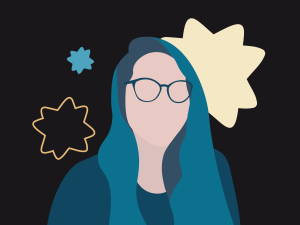
April 16, 2024
ADHD coach Jaye Lin was a gifted kid with undiagnosed ADHD. Now, she’s building communities and helping others cope with ADHD burnout.
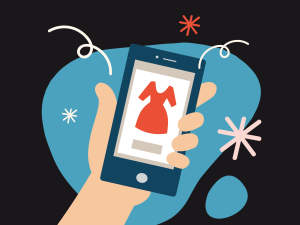
April 2, 2024
Writer Paulette Perhach had money coming in but struggled to keep it in her bank account. An ADHD diagnosis brought her struggles into perspective.
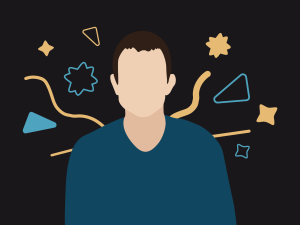
March 19, 2024
Eye to Eye founder David Flink is fighting the “just try harder” myth surrounding ADHD, dyslexia, and other learning and thinking differences.
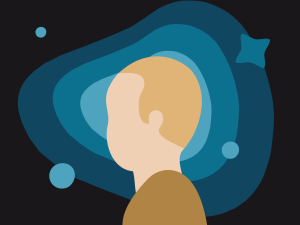
March 5, 2024
Peter Jones used to feel better saying he had a hearing problem rather than considering ADHD. Now, he knows he has ADHD and isn't afraid to say it.
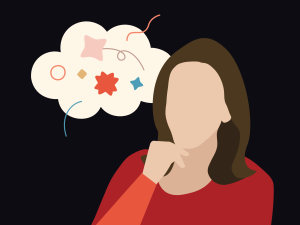
February 20, 2024
Before her ADHD diagnosis, ADHD coach Emily Weinberg thought she was just lazy. But in reality she was stuck in “analysis paralysis.”
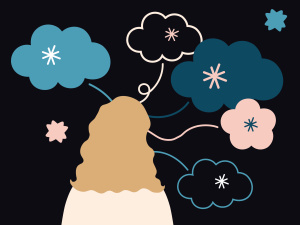
Carol Blumenstein was called an unteachable student. Now, she knows she has ADHD and dyslexia, and supports her five kids who learn differently, too.
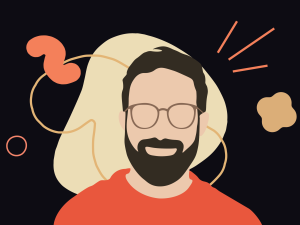
January 23, 2024
Executive coach, actor, and former criminal defense attorney Ernest Anemone shares his ADHD story — and why he questions the term “attention deficit.”
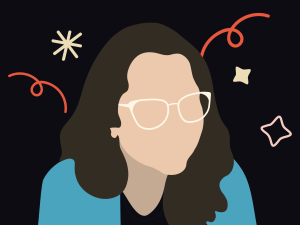
January 9, 2024
ADHD and post-traumatic stress disorder (PTSD) symptoms can look similar. And they can morph into what Hannah calls “a trauma ball of blame.”
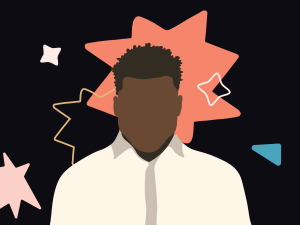
December 26, 2023
Livingston Steele was diagnosed with ADHD about a year into working at Understood.org. His experience and work have given him immense empathy for people with ADHD.
